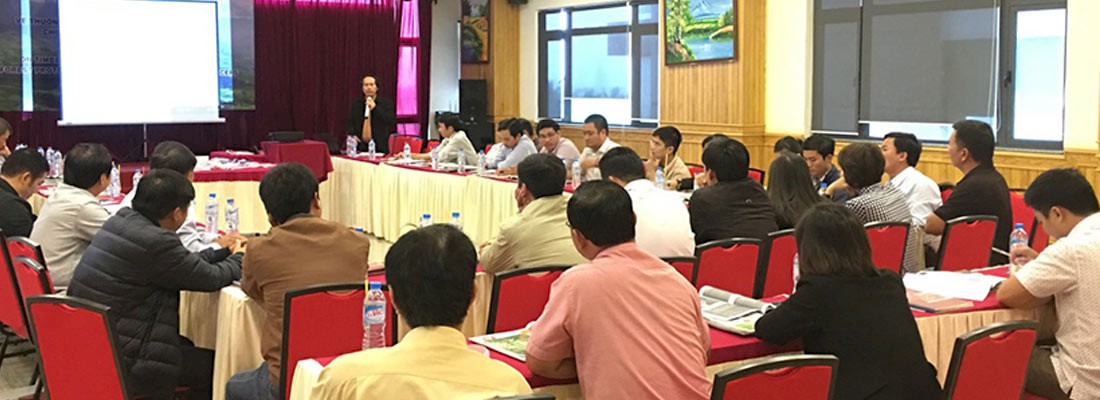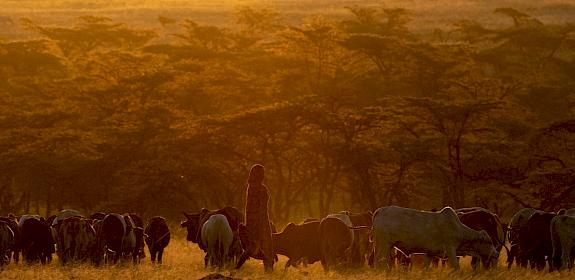Enforcement officers equipped to combat illegal timber trade in Viet Nam
Da Nang, Viet Nam, 24th November 2017—More than 40 Vietnamese Customs officers and Forest Department representatives from the central and highland regions of Viet Nam began a 1.5 day meeting today to learn how to identify commercial wood species that are subject to trade regulations and to receive training on the processing of timber trade violations.
This workshop, hosted by TRAFFIC and the Viet Nam Administration of Forestry (VNForest), is the second in a series of three sessions being offered nationwide. Attendees were updated on the current state of Viet Nam’s illegal timber trade, including new policies and legislation, and received instruction on how to identify regulated timber species using a specially designed toolkit, which includes a field identification guide, a reference guide, and magnifying glasses.
Illegal timber trade is a significant issue in the Asia-Pacific region, with the UN estimating that illegal lumber provides the source material for 30 to 40% of the total value of wood-based exports from the area.
In May, the Vietnamese government entered into a deal intended to boost trade and reduce the amount of illegal timber exported from the country into the EU market. As part of the implementation of the agreement, Viet Nam will need to meet new and revised requirements related to due diligence, legality frameworks and ensure its officials are trained to differentiate between legal and illegal timber.
To help them, the toolkit, produced by TRAFFIC and VNForest, includes a detailed technical identification guide for 35 species and instructions on how to handle violations. It will be distributed to forest protection and Customs officers to use on site when examining timber and identifying transport violations in-country and over the border.
“This training has value beyond just strengthening our borders. Improved law enforcement promotes sustainable practices, not just for Viet Nam, but for our neighbours as well. Illegal logging is a serious environmental threat. By providing these sessions, we are working to protect the forests of Southeast Asia, and an investment in our forests is an investment in the future,” said Le Van Bach, Director of VN Forest.
“After the training session, participants will be responsible for disseminating the content of workshop throughout their own organizations, which will secure VN Forest's final objective of reaching 100% of the officers dealing with the timber trade in Viet Nam”
The workshop was held under the umbrella of the Responsible Asia Forestry and Trade (RAFT) 3 programme. The RAFT3 programme works with partners in Viet Nam to strengthen policy and capacity for sustainable forest management and support Viet Nam’s role as a market for responsibly sourced timber. This includes helping Viet Nam’s burgeoning timber industry to boost its capacity to classify and identify legal timber for export to overseas markets.
“This is a critical period for Southeast Asia, as timber smugglers threaten to damage the environment in ways that will affect air quality, water, and food sources for generations. Working in partnership with VN Forest, and hosting training sessions such as this one, is essential to eliminating these unsustainable practices by providing the capacity to combat the illegal trade in timber,” said Madelon Willemsen, Head of TRAFFIC’s Viet Nam office.
The training session was funded by the Australian government through the RAFT3 programme. The next training session is planned for December 2017.
About RAFT
The Responsible Asia Forestry & Trade partnership (RAFT) brings together the skills and knowledge of seven leading organizations to provide capacity-building and knowledge-sharing services in support of the trade in responsibly harvested and processed commodities from forested landscapes across the Asia Pacific region. RAFT is supported by the Australian and US Governments, Norad and the Arcus Foundation, and is implemented by TNC, WWF, RECOFTC, TRAFFIC, the Institute for Global Environmental Strategies (IGES), the Forest Trust (TFT) and the Tropical Forest Foundation (TFF). In addition to these core partners, RAFT works with governments, industry, CSOs, IGOs and educational institutions from across the globe. www.responsibleasia.org




